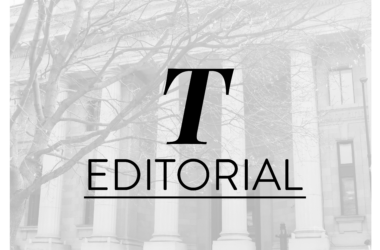On March 17, the results of this year’s Students’ Society of McGill University (SSMU) executive elections were announced. The entire process took less than 10 minutes. But brevity was to be expected–as is typical for SSMU elections, many of this year’s positions were uncontested, and the low level of fanfare was befitting of the 20 per cent voter turnout.
What distinguished this election from last year’s, and perhaps from any in recent history, however, was the series of scandals leading up to it. Since the beginning of this Winter semester, students have watched in increasing shock as former Arts representative Igor Sadikov touted violence against Zionists, former Vice-President (VP) External David Aird resigned following allegations of sexual harassment and assault, and, most recently, former president Ben Ger stepped down following allegations of gendered violence.
Across all of these crises, the Society’s response has been uncertain, delayed, and simply inadequate to resolve the concerns of affected students. These scandals do not negate the value of SSMU and the services it provides to students. However, if next year’s executives are to restore student trust in a society that, by and large, has failed as a representative body this Winter, they must learn from the harms of this year, and implement procedures to re-establish the transparency, accountability, and responsiveness of SSMU.
SSMU is important. It’s easy for most students to forget this because, for many students, the Society is only visible when it’s tied to a crisis or scandal. But between these flashpoints, the SSMU and its executives work throughout the year on behalf of students–they provide essential services in areas that the administration scales back on, such as peer support and student medical services, as well as identify and advocate for student interests. With bureaucratic work on top of their mandates, a reduction in the number of permanent staff to support executives, and the steep learning curve that comes with yearly turnover, executives are overburdened and underprepared even for the simple task of trying to keep SSMU running. In the face of this semester’s onslaught of crises, it isn’t surprising that the executives’ response was largely paralysis.
However, these constraints do not excuse SSMU’s poor response. Instead, it reveals the dire need for institutional mechanisms to deal with cases of violence committed by its leaders. Procedures must exist to deal with any student in power that causes harm, or otherwise violates their obligations to the student body. In the case of Sadikov’s tweet, SSMU waffled on the issue, and the former Arts representative’s fate was passed between three different bodies before Sadikov resigned from the Board of Directors. If students are ever attacked or made to feel unsafe, they trust that SSMU will be there for them, and take action to hold the perpetrator to account. For many students, that trust now feels misplaced.
In the case of alleged sexual and gendered violence, this semester has made clear that means of transparent and prompt disciplinary action are sorely lacking. A statement from the Community Disclosure Network (CDN) prompted Aird’s resignation from the executive council—appallingly, several SSMU executives were already aware Aird’s inappropriate workplace behaviour, and had sought to deal with the issue internally. This is a reprehensible contradiction of SSMU’s mandate to promote equity on campus, and a failure of SSMU’s commitment to the safety of its students. Transparent, accessible, and streamlined processes must exist to address allegations of sexual and gendered violence.
The incoming executive team has a tough job ahead of them. They must apply the lessons that can be taken from this year in meaningful and productive ways to ensure that students feel safe and represented by SSMU. This means establishing clear procedures and consequences for instances of harm and sexual violence perpetrated by student representatives, both for their term and for SSMU executives to come. It means consulting students on how to achieve this, and how to best serve student interests, to actively engage their constituents in ways that elections–largely popularity contests–cannot.
Above all, next year’s executives must follow through on their platform promises of renewed representation and accountability, and remind students why they should trust SSMU. The task of restoring student’s faith in SSMU will likely not be achieved in a single year, but it is imperative that the incoming executives begin addressing the damage done by the failures of this semester.









